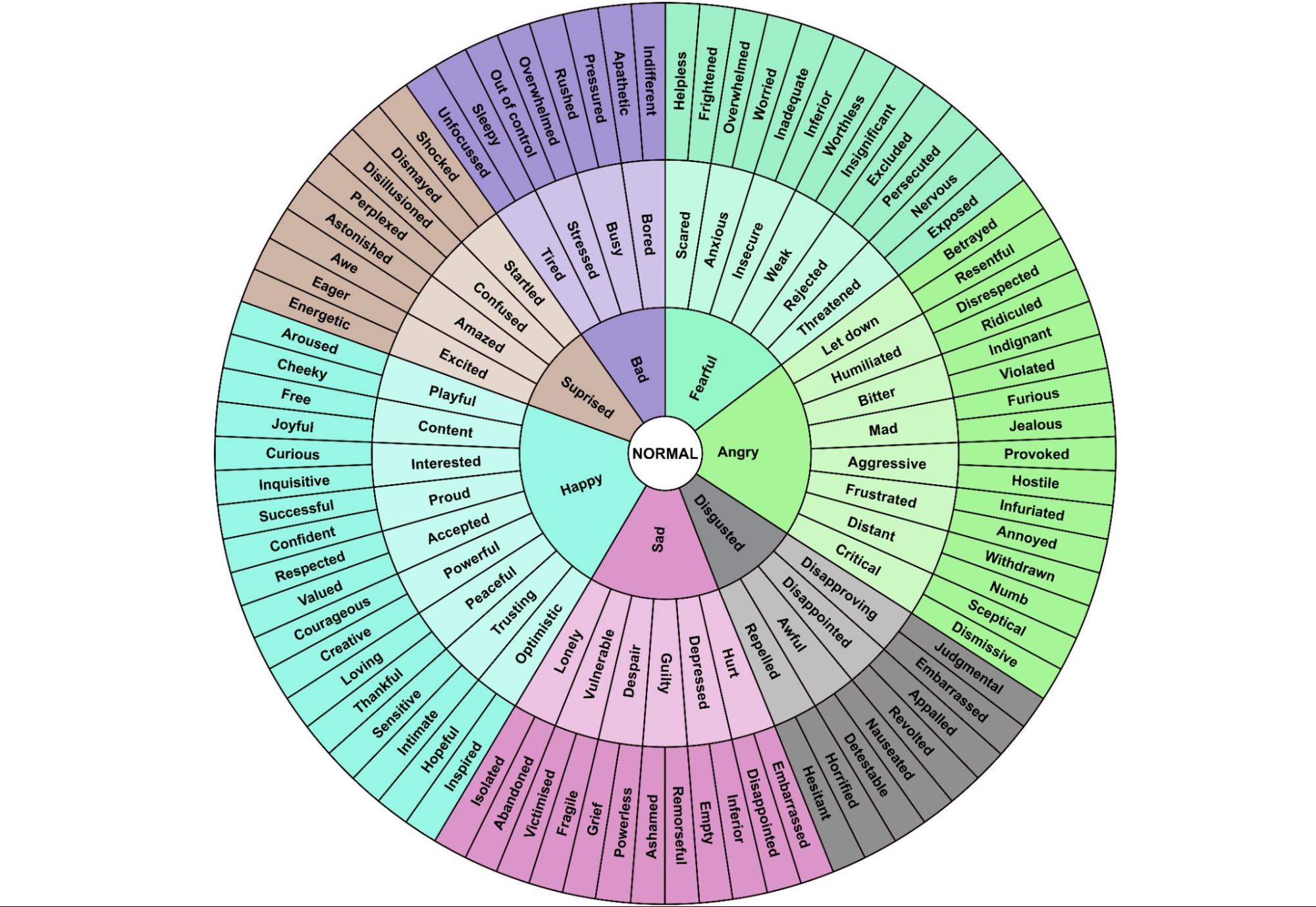Emotions are an essential part of the human experience. They guide and motivate us. Often, as a result of trauma or past stressful experiences, when faced with a trigger, these emotions can feel overwhelming, making it difficult to think clearly or act in a way that aligns with our values. Learning steps to deal with big emotions is essential for maintaining emotional well-being and supporting mental health. At Roots and Branches Therapy, we offer practical tools for managing these feelings so we can utilize them rather than feel controlled by them.
Why Do We Experience Big Emotions?

Big emotions are most often rooted in intense experiences and trauma. In some cases, big emotions can begin with neuroatypicality (e.g., ADHD, autism), certain mental health disorders (e.g., PTDS, bipolar, or personality disorders), or trauma to the brain (e.g., concussions, TBI). Whether you have experienced trauma or your brain just functions differently, big emotions get bigger and more confusing when you’re invalidated by phrases like, “Calm down,” “Be a man,” “Your too much,” or “You’re so sensitive.”
If you’ve ever wondered, “What can I do to calm down immediately?” or “How do I stop getting so emotional?”—you’re not alone. Part of any healing journey is learning to harness the power of your big emotions. Emotional dysregulation (or not being able to manage reactions to emotions) is like being in a taxi cab with your emotion as the driver. You might know where you want to go, but the emotion is behind the wheel. When you learn how to practice emotional regulation, you are the driver and the emotion is the engine. You cruising towards your goal and the emotion provides the motivation/energy/power to get you there.

Step 1: Use a de-escalation skill
If your sympathetic nervous system (SNS) is fired up, then your mind is racing, your heart may be pounding, your adrenaline might be pumping, your hands may be shaking, you may feel short of breath, or you might even feel as if your going to die. If your SNS has been pushed to it’s max, you might be shut down, zoned out, or disassociated. Here are 4 quick ways to help you self-soothe:
- Cold Water Trick: put cold (not frozen) water in a ziplock bag and put it across your eyes like and eye mask. This induces the “dive reflex.” Your body will think you are diving into a pool of cold water, which will automatically reduce your SNS activation.
- Sense 5, 4, 3, 2, 1: Look around the room, name 5 things you see. What’s touching your body, name 4 things to feel. Listen carefully; name 3 things you hear. Take a deep breath in through your nose; what 2 things do you smell? Finally, name one thing you taste.
- Use your ABC: Look around the room and name one thing you see for each letter of the alphabet.
- 4-7-8 technique: Inhale through your nose for a count of 4, hold your breath for 7 counts, and exhale slowly through your mouth for a count of 8.
Step 2: Identify & Name Your Emotions
When someone says that they are “overwhelmed,” it’s generally because they are experiencing a number of different emotions at the same time. Big emotions need to be acknowledged and named. Naming an emotion (like anger, fear, guilt, shame, joy, love, or sadness) helps us understand what we’re feeling and why we might feel that way.
Step 3: Determine if your Emotion Fits the Facts
Once you have named your emotions, ask yourself, “Does my emotion (or the intensity of it) fit the facts of the situation in front of me? Or am I having an escalated response because of something that happened in the past?” Note if you think there’s a past memory that is triggering you. Paying attention when this trigger comes up and then using a de-escalation skill (step 1), might help you in the future. Be sure to make a note to bring the memory into your next therapy session to process it.
Step 4: Identify What Your Emotion’s Action Urge Is
What does your big emotion(s) want you to do? Does your anger make you want to yell, fight or take revenge? Does your shame make you want to hide or harm yourself? Does your fear make you want to please the person you fear losing? Does your jealousy make you want to make demands of the person you love?
Now that you know your action urge, ask yourself, if I act on my action urge will it help me meet my goals in this situation? If you are anxious about writing a paper and your action urge is to avoid and procrastinate. Your action urge is not going to help you get the paper written, nor is it going to help reduce your anxiety. If you are jealous and your action urge is to search through your partner’s phone or personal space, and your goal is to have a long and trusting relationship – your action urge is unlikely to produce the desired outcome.
Step 5: Practice Opposite Action
If you have determined that your big emotion (or its intensity) does not fit the facts and/or you do not feel that your action urge is likely to help you achieve your goal, the next step is to practice opposite action. Opposite action means that you do the opposite of your action urge. So, when you find yourself anxious about writing a paper, you can’t avoid it; you have to incentivize yourself to start writing. Instead of hacking into your partner’s phone in a jealous rage, be vulnerable and have a courageous conversation about your feelings and their behavior. Or if you feel that you have already had that conversation and it has not changed your partner’s behavior, maybe it’s time for couples therapy or opposite action for love (aka taking space or breaking up).
Step 6: Self-Care Skills Help you Manage your Emotions
When you take care of yourself, your body and mind have greater emotional capacity and resilience. Martha Linehan, the creator of Dialectial Behavior Therapy, created an acronym to remind us of what we need to do to take care of ourselves like we are someone worthy of love and care: ABCPLEASE.
Accumulate Positive Emotions – Do activities that bring you joy. Practice gratitude. Notice pleasant events. Look for beauty around you.
Build Mastery – Learn new things. Do things that you are good at. Adult well and enjoy completion of discrete task: pay your bills, clean your room or apartment, or cook yourself a healthy meal.
Cope Ahead – Know that you might be facing a tricky or triggering situation? Decide how you are going handle potential conflict, have your coping skills at the ready.
PhysicaL Illness – When your sick, take care of yourself, rest, and do not push yourself beyond your limit. If you need medications for chronic conditions, take them regularly as prescribed.
Excercise – Dance, walk, or play your favorite sport – any movement that gets your resting heart rate up 20 minutes per day.
Avoid Mood Altering substances.
Sleep – Make sure your getting 8 solid hours of sleep and do not sleep for more than 10 hours
Eat Well – Nourish yourself with regular healthy meals.
Step 7: Practice Self-Compassion
When dealing with big emotions, it’s essential to practice self-compassion. Many people feel guilty or ashamed for experiencing intense emotions, especially when these feelings lead to reactions they later regret. When you notice yourself having a self-critical inner monologue or are invalidating of your own pain (“I’m too sensitive”), ask your self, “Is this how you would speak to someone you love in the same situation?” Remember that every action has a cause. Painful events in our lives shape our emotions and our reaction to those emotions. You are where you are because of everything that happened before and the same is true of the people around you. When Remind yourself that emotions are normal and that you’re doing your best to handle them. Practicing self-compassion can help you stay grounded and avoid mentally shutting down when emotions become overwhelming. Treat yourself as you would a friend in need, with kindness and understanding.
Step 8: Seek Support from Others
Sometimes, dealing with big emotions alone can be challenging. Support groups, friends, family members, or a therapist can offer a listening ear and new perspectives on managing emotions. Talking to someone you trust can help you feel validated, understood, and supported.
At Roots and Branches Therapy, we provide a safe space for individuals to explore their feelings and develop effective emotional regulation strategies. Therapy offers the guidance and tools needed to face emotions without feeling overwhelmed. Remember, being vulnerable and seeking help is a strength, not a weakness.
Conclusion: Embrace Your Emotions with Confidence
Learning how to deal with big emotions is a skill that takes practice. By implementing these steps above you can navigate intense emotions with greater ease and resilience. With the right strategies, you can channel the intensity and energy your emotions towards meeting your goals.
Embrace your emotional journey with compassion, patience, and confidence. Whether you’re dealing with nervous excitement, anger, or sadness, remember that emotions are temporary, and you have the tools to handle them. At Roots and Branches Therapy, we believe in empowering you to take charge of your emotional well-being and embrace life challenges as opportunities for growth and learning.



